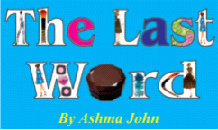 Every time I experience any form of racism, it is always “the apology” that manages to drive the knife further into the wound. It is always the forceful debating and rationalizing that many try to do in order to escape full accountability that hurt the most.
Every time I experience any form of racism, it is always “the apology” that manages to drive the knife further into the wound. It is always the forceful debating and rationalizing that many try to do in order to escape full accountability that hurt the most.
This week, when I saw pictures that went viral of MovieTowne Guyana’s Halloween haunted house, I was appalled and disgusted. I was repulsed by how insensitive people are towards acknowledging the trauma associated with the slave trade that still hovers over African people today and appalled at how easily some people feel so comfortable to assess what one can or can’t be affected by.
Part of the Halloween haunted house décor featured Black dolls hanging from rope-like attachments bearing a marked resemblance to the lynchings that historically targeted Black people. It was rightfully condemned by many. Yet, the company’s owner sought to defend this ill-thought-out art execution. He thought it fit to justify the atrocities carried out in the past by his vile comments
“When we talk about [race], you can interpret anything as you want it,” he was quoted as saying. “There is this movement in the United States of taking down statues that depicted an era where they were slave masters or whatever or Christopher Columbus for that matter.
“We weren’t there in that time. We don’t know what the bad or the good was.”
I thought of how comfortable and privileged the owner must feel to speak without thought or care. I thought of how power influences and how easily these words might become ammunition for anyone who has found themselves in a similar position. It’s always the lack of admission of wrongdoing that further hurts the wronged party.
Racist experiences will continue, and while many of us have gained the strength and courage to speak up for ourselves and explain how we have been wronged, we must also have the courage to refuse to accept the excuses and so-called apologies that feed the egos of the persons doing the wrong.
‘I didn’t mean it like that’: This is not an apology. Whatever you meant has nothing to do with the issue. The only thing that should matter is how your words or actions caused harm. Don’t use the word ‘might’ because there is no doubt that you did. The person wouldn’t be bringing it up if it didn’t affect them.
‘I experience racism too’: This is also not an apology. Sure you do and while no one is arguing about that, we aren’t playing tit for tat. This isn’t the ‘Suffering Olympics’ where we are trying to outdo each other because we feel guilty for sitting in shame.
A real apology should always be focused on seeing the person who has been wronged, as opposed to trying to force that person to understand why it is somehow technically okay to cause them harm.
